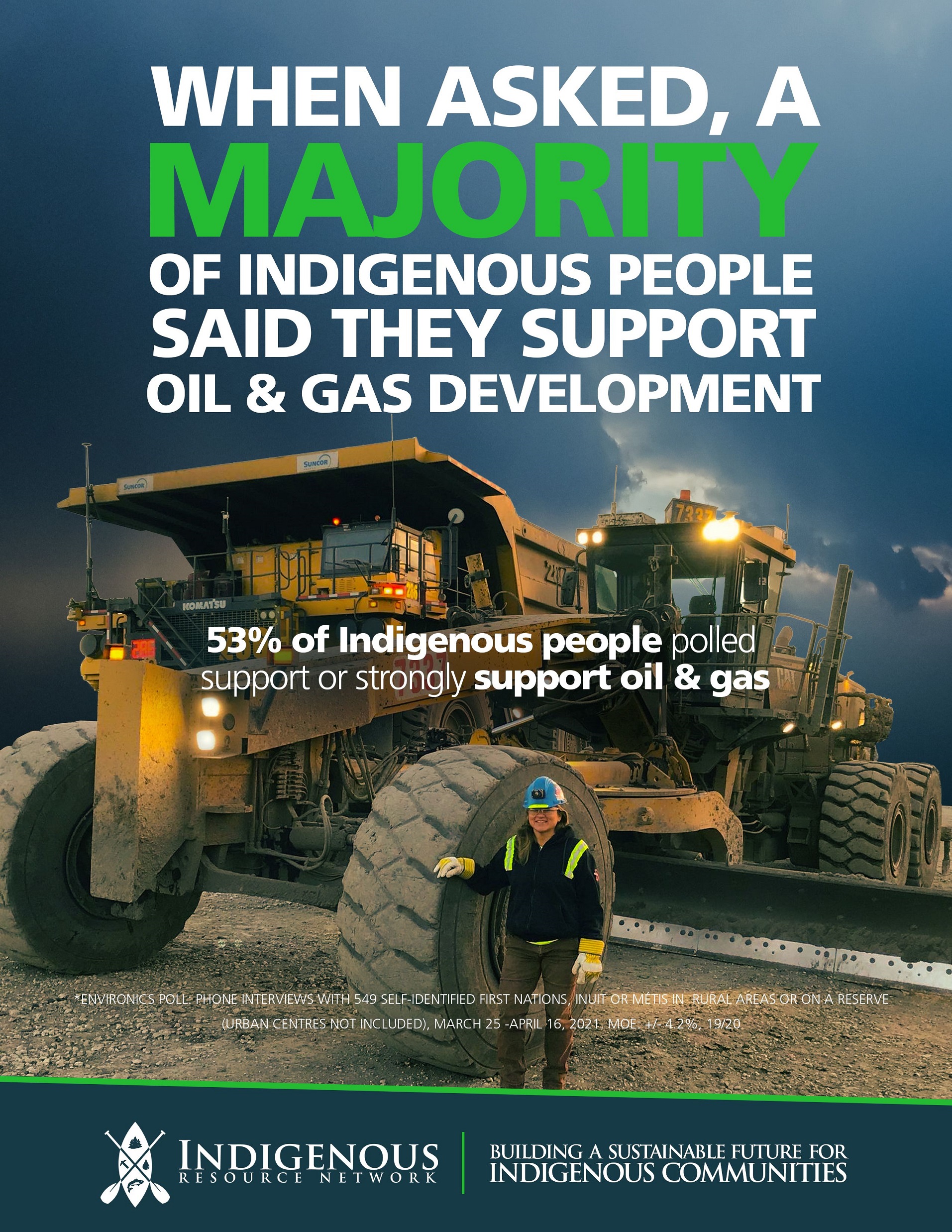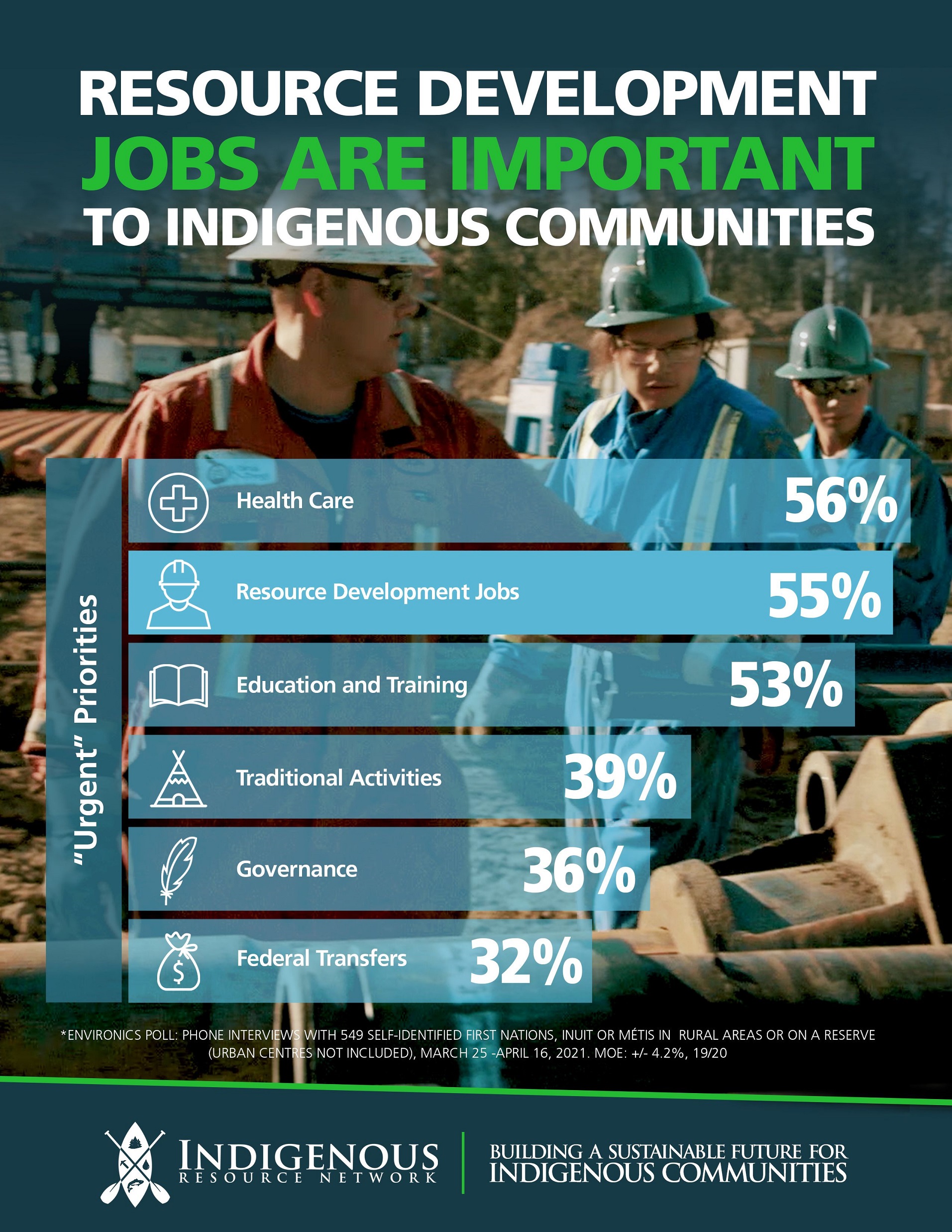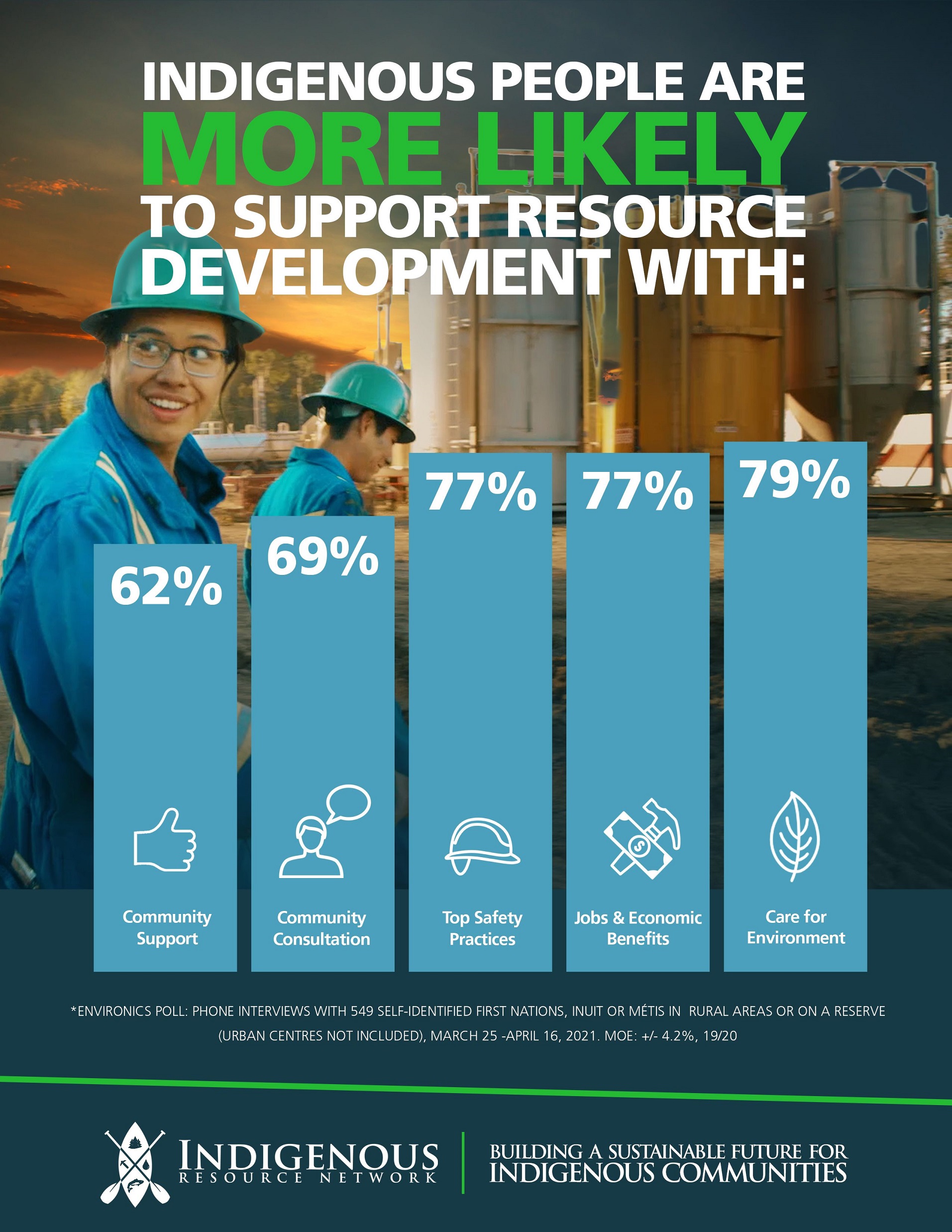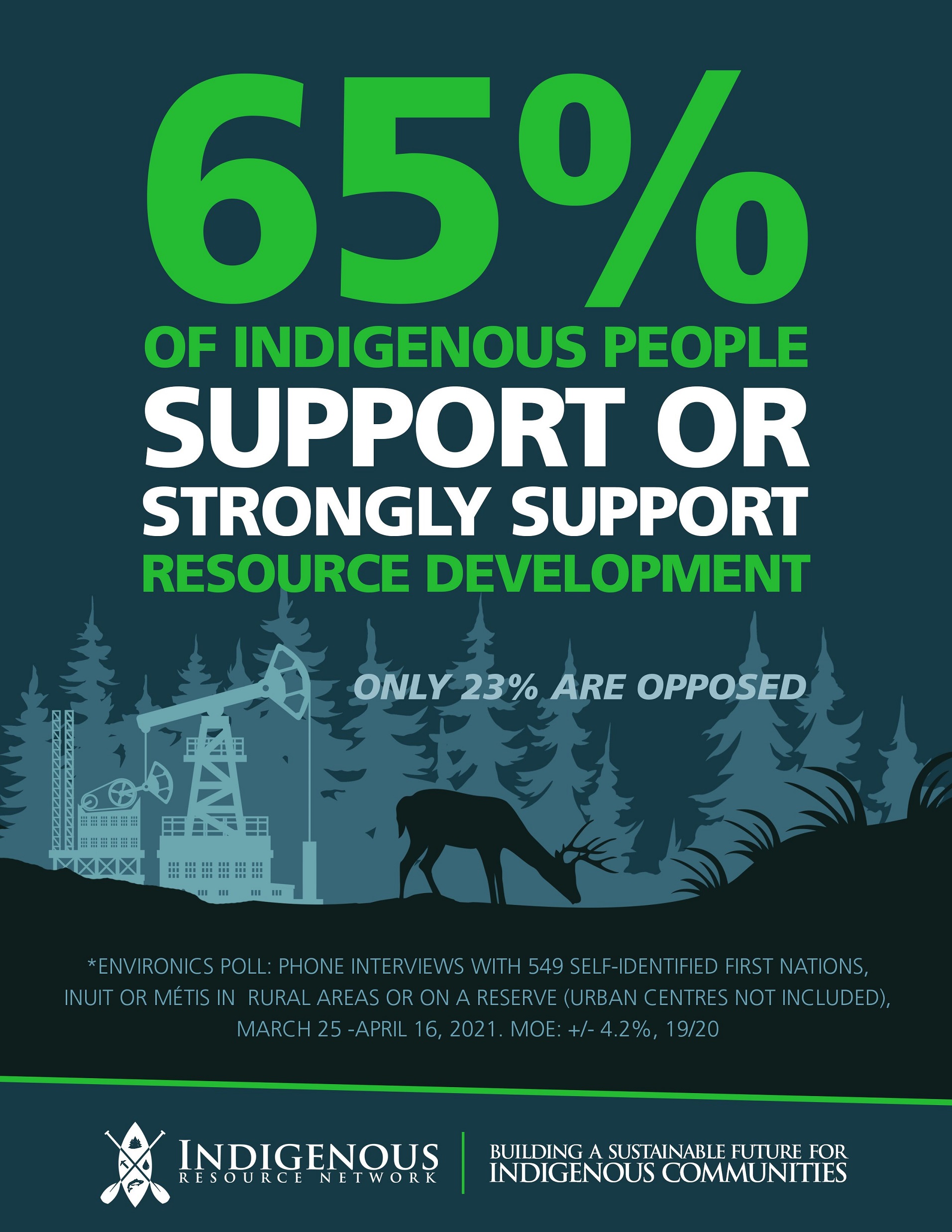The Majority of Indigenous People in Rural Areas and On-Reserve Support Resource Development, According To Recent Survey
RELEASE
A recent survey conducted by Environics Research for the Indigenous Resource Network, a non-partisan platform for Indigenous workers and business owners involved in resource development, found that 65% of Indigenous respondents said they supported natural resource development, while only 23% indicated that they were opposed. Asked if a new project were to be proposed near their own community, supporters outweighed opponents by two to one (54% to 26%).
What we’re seeing here is a confirmation that, despite an often-heard narrative, most Indigenous people are not opposed to resource development, but are opposed to being left out.
The survey interviewed 549 self-identified First Nations, Métis and Inuit persons living in rural areas or on-reserve across Canada by telephone between March 25 and April 16, 2021.
When asked more specifically about types of resource development, majorities supported both mining (59% support vs. 32% oppose), and oil and gas development (53% support vs. 41% oppose).
“What we’re seeing here is a confirmation that, despite an often-heard narrative, most Indigenous people are not opposed to resource development, but are opposed to being left out,” explains Sarah Roberton, Vice President of Public Affairs at Environics Research. “These results really underscore the need for meaningful and credible research devoted to reflecting Indigenous viewpoints. Given the importance of these issues for Indigenous communities, building partnerships that allow for more effective engagement is essential and something that we focus on at Environics Research.”
Other key study findings include:
- Strong support for natural resource development was consistently higher among those who felt they were well-informed about the topic. However, a majority did not feel particularly well-informed about natural resource development, with only three in ten (30%) who described themselves as very or extremely informed about the topic. More than one-third felt somewhat well-informed (38%), while three in ten did not feel well- informed (30%).
- Half of respondents (49%) believed that resource development can definitely be done while respecting the land and the environment, with another third (36%) indicating that it may or may not be possible. Only one in ten (11%) believed being successful at both was definitely not a possibility.
- Indigenous people were more likely to support resource development if the project:
- Includes best practices in protecting the environment (79%); provides economic benefits, such as jobs, business opportunities and revenues for the community (77%); has best practices in safety (77%); consults the community (69%); and receives community support to proceed (62%).
- The percentage of respondents who identified the following as an “urgent” priority to improving the quality of life in their community included: better access to health care (56%); job opportunities from economic or resource development (55%); better access to education and training (53%); focus on traditional activities, such as ceremonies or being on the land (39%); better governance (36%); and increased transfer payments from the federal government to the community (33%).
Find out how Environics can help your organization
Related insights



Toronto
366 Adelaide Street West
Suite 101, Toronto, ON
Canada M5V 1R9
416 920 9010
Ottawa
116 Albert St
Suite 300, Ottawa, ON
Canada K1P 5G3
613 230 5089
Calgary
421 7th Ave SW
Suite 3000, Calgary, AB
Canada T2P 4K9
403 613 5735





